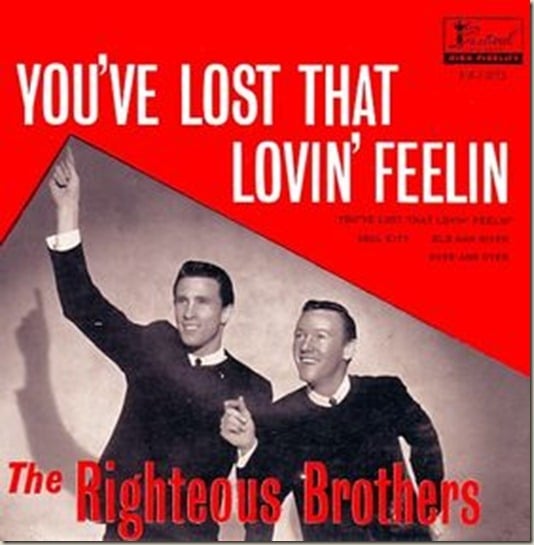Introduction: “You’ve Lost That Lovin’ Feelin'” stands as a monumental achievement in the annals of popular music, a timeless classic that has left an indelible mark on listeners’ hearts for over half a century. Recorded by the legendary duo The Righteous Brothers, this iconic song epitomizes the raw emotion, soaring melodies, and soulful delivery that defined the golden age of 1960s soul music. In this extensive exploration, we delve into the origins, significance, and enduring legacy of “You’ve Lost That Lovin’ Feelin’,” celebrating its impact on music history and its timeless resonance with audiences worldwide.
Origins and Genesis: Written by legendary songwriters Barry Mann, Cynthia Weil, and Phil Spector, “You’ve Lost That Lovin’ Feelin'” was born out of a collaboration between Spector and the husband-and-wife songwriting team. Inspired by the classic country song “There Goes My Baby,” Spector sought to create a dramatic, symphonic sound that would elevate the traditional pop ballad to new heights of emotion and intensity. The result was a masterpiece of songcraft that would become one of the defining hits of the 1960s.
The Righteous Brothers: The recording of “You’ve Lost That Lovin’ Feelin'” marked a pivotal moment in the career of The Righteous Brothers, the iconic duo comprising Bill Medley and Bobby Hatfield. With their powerful, emotive vocal performances and impeccable harmonies, Medley and Hatfield became synonymous with the soulful sound of the 1960s, earning them a dedicated fanbase and widespread acclaim. “You’ve Lost That Lovin’ Feelin'” catapulted The Righteous Brothers to superstardom, establishing them as one of the premier acts of the era.
Musical Composition and Arrangement: “You’ve Lost That Lovin’ Feelin'” is characterized by its lush orchestration, haunting melody, and impassioned vocal delivery, creating an atmosphere of longing, heartache, and romantic despair. The song’s distinctive “wall of sound” production, pioneered by Phil Spector, features layers of strings, horns, and percussion that build to a crescendo of emotional intensity. Medley and Hatfield’s soulful vocals intertwine with the orchestration, conveying the pain and anguish of lost love with remarkable depth and authenticity.
Lyrical Themes and Emotional Depth: At its core, “You’ve Lost That Lovin’ Feelin'” is a song about the dissolution of a romantic relationship and the emotional turmoil that accompanies lost love. The lyrics, penned by Mann and Weil, express the anguish and desperation of a protagonist who feels abandoned and unloved by their partner. The refrain, “You’ve lost that lovin’ feelin’, now it’s gone, gone, gone,” captures the sense of betrayal and disillusionment that pervades the song, resonating with listeners who have experienced the pain of heartbreak.
Cultural Impact and Enduring Legacy: Upon its release in 1964, “You’ve Lost That Lovin’ Feelin'” became an instant sensation, topping the charts in the United States and around the world. Its success marked a turning point in the evolution of popular music, ushering in a new era of soulful, emotionally charged ballads that would dominate the airwaves for years to come. The song’s enduring popularity has led to countless cover versions and adaptations by artists across genres, cementing its status as a timeless classic.
Conclusion: “You’ve Lost That Lovin’ Feelin'” by The Righteous Brothers stands as a towering achievement in the annals of popular music, a timeless masterpiece that continues to resonate with audiences around the world. With its soul-stirring vocals, evocative lyrics, and sumptuous orchestration, the song embodies the essence of 1960s soul music while transcending genre and era to speak to the universal experience of love and loss. As we celebrate the legacy of “You’ve Lost That Lovin’ Feelin’,” we pay tribute to The Righteous Brothers’ enduring contribution to music history and reaffirm the song’s place in the pantheon of timeless musical classics.
